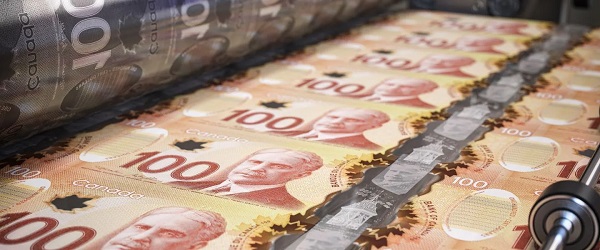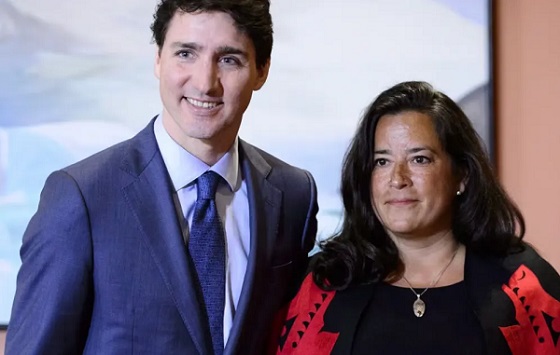Uncategorized
GOP pushing forward for Kavanaugh, accuser wants ‘fairness’

WASHINGTON — Democrats accused Republicans Thursday of using roughshod tactics against the woman who is accusing Brett Kavanagh of a decades-old sexual attack as Republicans forged ahead in their drive to push his Supreme Court nomination through the Senate.
With Kavanaugh’s confirmation in the balance, it remained unclear whether Christine Blasey Ford would appear at a Senate Judiciary Committee hearing set for Monday, to which both were invited. Panel Chairman Chuck Grassley, R-Iowa, has told Ford’s attorneys that the panel was giving the California psychology professor until 10 a.m. Friday to submit a biography and a prepared statement “if she intends to testify.”
Republicans say they’ve tried to accommodate Ford, offering to let her testify in public or private and suggesting that committee aides would travel to her California home to take testimony. Kavanaugh, currently a judge on the powerful District of Columbia Circuit Court of Appeals, has denied her allegation.
Democrats have leapt to support Ford, with Washington state Sen. Patty Murray saying Thursday that Republicans should be “ashamed” for pushing forward without a fair investigation. That echoed Democrats’ effort to broaden the nomination fight into a referendum on whether women who allege abuse are taken seriously by men — a theme that could echo in this November’s elections for control of Congress.
“If you have been assaulted or harassed by a powerful Republican man, you better not talk about it or you’re going to pay a price,” Murray said concerning Ford’s situation.
Sen. Kirsten Gillibrand, D-N.Y., said Republicans are “bullying” Ford by giving her a Monday deadline to testify to the committee. Gillibrand said Republicans want a “he said, she said” scenario because men are usually believed.
Kavanaugh was spotted at the White House Thursday, and allies say he is eager to address the accusation and will be prepared to address the committee Monday.
President Donald Trump kept quiet on Twitter, though he continues to back his nominee. The White House would like to see Ford testify so it will be clear she has been given the space to speak, but believes that if she doesn’t, the process will continue and he will be confirmed, according to people who weren’t authorized to discuss administration thinking by name.
Through her attorneys, Ford left her attendance at Monday’s hearing in doubt. And despite Grassley’s schedule, it remained unclear if that hearing would occur without her, as a drama that has riveted Washington since emerging a week ago was injected with a fresh burst of election-season suspense.
Ford lawyer Lisa Banks said in a statement late Wednesday that Ford would
Banks reiterated that Ford has had to leave her home because of threats to her family’s safety and said, “Fairness and respect for her situation dictate that she should have time to deal with this.”
Ford has contended that at a house party in the 1980s, a drunken Kavanaugh tried undressing her and stifling her cries on a bed before she fled.
Trump and Senate Republicans have been emphatic that an FBI renewal of its background checks on Kavanaugh won’t happen, saying an investigation by committee staff — which Democrats are boycotting — is sufficient.
Republican leaders trying to keep GOP senators behind Kavanaugh are offering Ford a chance to describe her allegation, either in a hearing room before television cameras or in private. Republicans have largely stood by Kavanaugh’s denials.
Democrats are casting Republicans as strong-arming a wronged woman, their eyes on a #MeToo movement that has caught fire and exploded the careers of dozens of male titans.
Republicans are resisting all Democratic efforts to slow and perhaps block Kavanaugh’s confirmation. A substantial delay could push confirmation past the November elections, when Democrats have a shot at winning Senate control, plus allow more time for unforeseen problems to pop up.
There were signs the GOP moves were keeping possible Republican defections in check. The party controls the Senate 51-49 and the Judiciary panel by 11-10, so it cannot afford GOP “no” votes.
Moderate GOP Sen. Susan Collins of Maine, who’s had her share of clashes with Trump, said she hoped Ford would reconsider a decision not to testify and “it’s not fair to Judge Kavanaugh” if she refuses. “Otherwise, there are these very serious allegations hanging over the head of a nominee who has emphatically denied them,” she said on radio WVOM in Bangor.
Sen. Lindsey Graham, R-S.C., said Democrats’ demands for an FBI investigation were a ploy to delay a confirmation vote and said the Judiciary committee should vote on Kavanaugh “as soon as possible.”
___
Associated Press writers Padmananda Rama, Catherine Lucey and Mary Clare Jalonick contributed.
Alan Fram And Lisa Mascaro, The Associated Press
Uncategorized
Trump Admin Establishing Council To Make Buildings Beautiful Again


From the Daily Caller News Foundation
By Jason Hopkins
The Trump administration is creating a first-of-its-kind task force aimed at ushering in a new “Golden Age” of beautiful infrastructure across the U.S.
The Department of Transportation (DOT) will announce the establishment of the Beautifying Transportation Infrastructure Council (BTIC) on Thursday, the Daily Caller News Foundation exclusively learned. The BTIC seeks to advise Transportation Secretary Sean Duffy on design and policy ideas for key infrastructure projects, including highways, bridges and transit hubs.
“What happened to our country’s proud tradition of building great, big, beautiful things?” Duffy said in a statement shared with the DCNF. “It’s time the design for America’s latest infrastructure projects reflects our nation’s strength, pride, and promise.”
“We’re engaging the best and brightest minds in architectural design and engineering to make beautiful structures that move you and bring about a new Golden Age of Transportation,” Duffy continued.
Mini scoop – here is the DOT’s rollout of its Beautifying Transportation Infrastructure Council, which will be tasked with making our buildings beautiful again. pic.twitter.com/
9iV2xSxdJM — Jason Hopkins (@jasonhopkinsdc) October 23, 2025
The DOT is encouraging nominations of the country’s best architects, urban planners, artists and others to serve on the council, according to the department. While ensuring that efficiency and safety remain a top priority, the BTIC will provide guidance on projects that “enhance” public areas and develop aesthetic performance metrics.
The new council aligns with an executive order signed by President Donald Trump in August 2025 regarding infrastructure. The “Making Federal Architecture Beautiful Again” order calls for federal public buildings in the country to “respect regional architectural heritage” and aims to prevent federal construction projects from using modernist and brutalist architecture styles, instead returning to a classical style.
“The Founders, in line with great societies before them, attached great importance to Federal civic architecture,” Trump’s order stated. “They wanted America’s public buildings to inspire the American people and encourage civic virtue.”
“President George Washington and Secretary of State Thomas Jefferson consciously modeled the most important buildings in Washington, D.C., on the classical architecture of ancient Athens and Rome,” the order continued. “Because of their proven ability to meet these requirements, classical and traditional architecture are preferred modes of architectural design.”
The DOT invested millions in major infrastructure projects since Trump’s return to the White House. Duffy announced in August a $43 million transformation initiative of the New York Penn Station in New York City and in September unveiledmajor progress in the rehabilitation and modernization of Washington Union Station in Washington, D.C.
The BTIC will comprise up to 11 members who will serve two-year terms, with the chance to be reappointed, according to the DOT. The task force will meet biannually. The deadline for nominations will end Nov. 21.
Uncategorized
New report warns WHO health rules erode Canada’s democracy and Charter rights

The Justice Centre for Constitutional Freedoms has released a new report titled Canada’s Surrender of Sovereignty: New WHO health regulations undermine Canadian democracy and Charter freedoms. Authored by Nigel Hannaford, a veteran journalist and researcher, the report warns that Canada’s acceptance of the World Health Organization’s (WHO) revised International Health Regulations (IHR) represents a serious erosion of national independence and democratic accountability.
The IHR amendments, which took effect on September 19, 2025, authorize the WHO Director-General to declare global “health emergencies” that could require Canada to follow directives from bureaucrats in Geneva, bypassing the House of Commons and the will of Canadian voters.
The WHO regards these regulations as “binding,” despite having no ability or legal authority to impose such regulations. Even so, Canada is opting to accept the regulations as binding.
By accepting the WHO’s revised IHR, the report explains, Canada has relinquished its own control over future health crises and instead has agreed to let the WHO determine when a “pandemic emergency” exists and what Canada must do to respond to it, after which Canada must report back to the WHO.
In fact, under these International Health Regulations, the WHO could demand countries like Canada impose stringent freedom-violating health policies, such as lockdowns, vaccine mandates, or travel restrictions without debate, evidence review, or public accountability, the report explains.
Once the WHO declares a “Pandemic Emergency,” member states are obligated to implement such emergency measures “without delay” for a minimum of three months.
Importantly, following these WHO directives would undermine government accountability as politicians may hide behind international “commitments” to justify their actions as “simply following international rules,” the report warns.
Canada should instead withdraw from the revised IHR, following the example of countries like Germany, Austria, Italy, Czech Republic, and the United States. The report recommends continued international cooperation without surrendering control over domestic health policies.
Constitutional lawyer Allison Pejovic said, “[b]y treating WHO edicts as binding, the federal government has effectively placed Canadian sovereignty on loan to an unelected international body.”
“Such directives, if enforced, would likely violate Canadians’ Charter rights and freedoms,” she added.
Mr. Hannaford agreed, saying, “Canada’s health policies must be made in Canada. No free and democratic nation should outsource its emergency powers to unelected bureaucrats in Geneva.”
The Justice Centre urges Canadians to contact their Members of Parliament and demand they support withdrawing from the revised IHR to restore Canadian sovereignty and reject blind compliance with WHO directives.
-

 Justice1 day ago
Justice1 day agoCarney government lets Supreme Court decision stand despite outrage over child porn ruling
-

 Daily Caller2 days ago
Daily Caller2 days agoUS Eating Canada’s Lunch While Liberals Stall – Trump Admin Announces Record-Shattering Energy Report
-

 Business1 day ago
Business1 day agoCarney’s budget spares tax status of Canadian churches, pro-life groups after backlash
-

 COVID-191 day ago
COVID-191 day agoFreedom Convoy leader Tamara Lich to appeal her recent conviction
-

 Energy2 days ago
Energy2 days agoEby should put up, shut up, or pay up
-

 Business1 day ago
Business1 day agoThe Liberal budget is a massive FAILURE: Former Liberal Cabinet Member Dan McTeague
-

 Daily Caller24 hours ago
Daily Caller24 hours agoUN Chief Rages Against Dying Of Climate Alarm Light
-

 Business2 days ago
Business2 days agoPulling back the curtain on the Carney government’s first budget










